June 12, 2014 •
Thursday News Roundup
Lobbying “Lobby groups hunker down for storm” by Bernie Becker and Benjamin Goad in The Hill. “Cantor’s K Street value: Off the charts” by Megan R. Wilson in The Hill. Campaign Finance “Tech firm looks to bring bitcoins to campaigns” […]
 Lobbying
Lobbying
“Lobby groups hunker down for storm” by Bernie Becker and Benjamin Goad in The Hill.
“Cantor’s K Street value: Off the charts” by Megan R. Wilson in The Hill.
Campaign Finance
“Tech firm looks to bring bitcoins to campaigns” by Julian Hattem in The Hill.
“Got bitcoins to spend? Here are some options” by Laura Lorenzetti in Fortune.
Alaska: “Campaign-Finance Challenge in Alaska Senate Race” by Jeremy W. Peters in The New York Times.
Florida: “Campaign Cash Offers Picture of Legislative Races” by Jim Saunders in the Sunshine State News.
Ethics
Illinois: “Jurors Have Some Trouble Convicting Illinois Legislator of Bribery” by Jason Meisner in Governing.
Rhode Island: “R.I. Senate delays vote on ethics bill to consider possible changes” by Randal Edgar in the Providence Journal.
State Legislatures
Michigan: “Michigan petition drive for part-time Legislature falls short but organizers look to 2016” by Jonathan Oosting on Michigan Live.
New York: “Cuomo ‘not overly optimistic’ about end of legislative session” by Jimmy Vielkind in Capital New York.
Virginia: “Lawmakers return to pass budget” by Michael Marts in The Roanoke Times.
Washington: “Slew of state laws take effect” by Lauren Dake in The Columbian.
June 11, 2014 •
Federal Judge Denies Request to Enjoin Enforcement of Connecticut Campaign Finance Law
U.S. District Judge Janet Hall has denied an injunction request by the Democratic Governors Association (DGA) to enjoin the state’s campaign finance laws. DGA argued Connecticut’s campaign finance law limits the ability of political groups to buy independent ads supporting […]
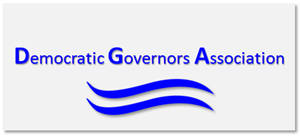 U.S. District Judge Janet Hall has denied an injunction request by the Democratic Governors Association (DGA) to enjoin the state’s campaign finance laws.
U.S. District Judge Janet Hall has denied an injunction request by the Democratic Governors Association (DGA) to enjoin the state’s campaign finance laws.
DGA argued Connecticut’s campaign finance law limits the ability of political groups to buy independent ads supporting candidates by treating such spending as a contribution to the candidates supported, thus making it subject to campaign finance limits.
In denying the injunction, Judge Hall found the DGA did not establish a likelihood it would prevail in its challenge of the law.
June 11, 2014 •
Eric Cantor Loses Primary Battle
House Majority Leader Eric Cantor suffered a bruising primary defeat by tea party challenger Dave Brat on June 10. Strategists say Cantor’s 11 percentage point loss was due to a lack of field effort, fueled by overconfidence in his path […]
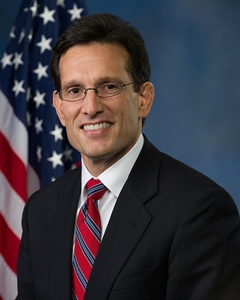 House Majority Leader Eric Cantor suffered a bruising primary defeat by tea party challenger Dave Brat on June 10.
House Majority Leader Eric Cantor suffered a bruising primary defeat by tea party challenger Dave Brat on June 10.
Strategists say Cantor’s 11 percentage point loss was due to a lack of field effort, fueled by overconfidence in his path to victory. Many Republicans felt Cantor had become too removed from his district, mired in Washington infighting and too focused on the national stage.
According to historians, no House leader of Cantor’s rank has ever been defeated in a primary.
June 11, 2014 •
Wednesday Government Relations News
Lobbying “Lobbying World” in The Hill. “Sallie Mae spin-off registers to lobby” by Megan R. Wilson in The Hill. “Amplifyd: Crowd-Sourced Lobbying Launches Website” by Annie Spiegelman in The Huffington Post. “Politico: Wall Street Loses an Ally With Cantor’s Defeat” […]
 Lobbying
Lobbying
“Lobbying World” in The Hill.
“Sallie Mae spin-off registers to lobby” by Megan R. Wilson in The Hill.
“Amplifyd: Crowd-Sourced Lobbying Launches Website” by Annie Spiegelman in The Huffington Post.
“Politico: Wall Street Loses an Ally With Cantor’s Defeat” by Drew MacKenzie in Newsmax.
North Carolina: “Senate honors longtime lawmaker, lobbyist Alley” by Tara Jeffries in WRAL.
Campaign Finance
“Campaign Finance Hearings Showcase Extremes | Rules of the Game” by Eliza Newlin Carney in Roll Call.
“A Reporter Crashes the Super PAC Party” by Walter Shapiro in the Brennan Center for Justice Blog.
“Bitcoin bulks up lobbying power” by Julian Hattem in The Hill.
Connecticut: “Democratic governors lose challenge to Connecticut campaign finance law” by Nate Raymond in Reuters.
Kansas: “Panel looking into ethics of Facebook post seeking contributions to Schodorf campaign” by Brian Lowry in The Wichita Eagle.
North Carolina: “Legislators call for constitutional convention” in The Times-News.
Ohio: “Former executive testifies in campaign finance trial of northeast Ohio businessman” by The Associated Press in The Republic.
Elections
“5 takeaways from Eric Cantor shocker” by James Hohmann in Politico.
June 11, 2014 •
15,245 Questions Answered!
In the monthly State and Federal Communications staff meetings, each department provides an update of what’s new so the entire staff can get a picture of what each department is up to. One of the things the Research Department likes […]
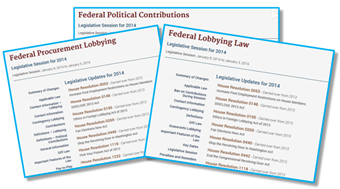 In the monthly State and Federal Communications staff meetings, each department provides an update of what’s new so the entire staff can get a picture of what each department is up to. One of the things the Research Department likes to share with the staff is statistics that provide some insight as to the volume of information we track and update.
In the monthly State and Federal Communications staff meetings, each department provides an update of what’s new so the entire staff can get a picture of what each department is up to. One of the things the Research Department likes to share with the staff is statistics that provide some insight as to the volume of information we track and update.
The information on our website is contained in a database, which contains 223 individual questions that need to be addressed in each of the more than 300 jurisdictions available on our website. In round numbers, this means there are roughly 70,000 individual “chunks” of data in our database, which may be as short as one word or as long as the approximately 3,900 words it takes to explain California’s complex campaign finance reporting system. One interesting statistic we like to share in each meeting is the number of these individual questions “touched” since the last staff meeting, as a rough measure of how many pieces of information were updated on the website. Between our April 21and May 29 staff meetings, the Research Department updated 15,245 questions in our database, either as part of the normal review process or as part of updates made to the website due to changed information, such as the passage of a new bill or a new phone number for a contact. Mind you, not every question processed through the system gets changed, as it is sometimes necessary to look at a question just to verify the information, but this statistic gives a good idea of the volume of information being looked at during the period in question.
Another interesting statistic involves the number of what we call “supplemental documents,” that is, the documents you can find in under the “Statutes, Regulations, Forms…” link on our website. These are the statutes, opinions, guides, and forms we keep on our website as both a quick reference and a ready source of forms to assist with registration and reporting. As of our May 29 meeting, we had 5,814 such documents available on our website. In the 12 months preceding the meeting, 2,022 of those documents had been updated.
June 10, 2014 •
California Senate Resolutions Strengthen Ethics Laws
The Senate has passed resolutions to tighten ethics laws by creating a new position of ethics ombudsman, installing protections for whistleblowers, and banning the raising of campaign funds during August, the last month of the legislative year. A bill to […]
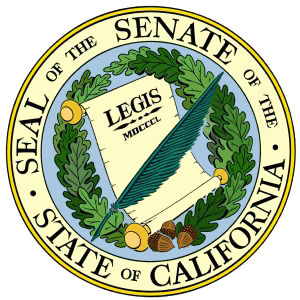 The Senate has passed resolutions to tighten ethics laws by creating a new position of ethics ombudsman, installing protections for whistleblowers, and banning the raising of campaign funds during August, the last month of the legislative year. A bill to extend the fundraising blackout period to the Assembly fell four votes short of the two-thirds needed for approval.
The Senate has passed resolutions to tighten ethics laws by creating a new position of ethics ombudsman, installing protections for whistleblowers, and banning the raising of campaign funds during August, the last month of the legislative year. A bill to extend the fundraising blackout period to the Assembly fell four votes short of the two-thirds needed for approval.
The Senate also approved an amended bill to regulate travel gifts and the use of campaign funds. Senate Bill 831 initially would have barred acceptance of gifts of travel worth more than $8,000, but was amended to only require nonprofit groups paying for legislators’ travel to disclose donor information.
At its June 18 meeting, the Hawaii State Ethics Commission will consider whether to issue guidance to state legislators regarding the use of their annual legislative allowance. The state Constitution provides the allowance for each legislator to cover incidental expenses […]
 At its June 18 meeting, the Hawaii State Ethics Commission will consider whether to issue guidance to state legislators regarding the use of their annual legislative allowance. The state Constitution provides the allowance for each legislator to cover incidental expenses connected with legislative duties. The funds may not be used for any personal expenses including, but not limited to, gifts, campaign contributions, or food and beverages related to social activities and events.
At its June 18 meeting, the Hawaii State Ethics Commission will consider whether to issue guidance to state legislators regarding the use of their annual legislative allowance. The state Constitution provides the allowance for each legislator to cover incidental expenses connected with legislative duties. The funds may not be used for any personal expenses including, but not limited to, gifts, campaign contributions, or food and beverages related to social activities and events.
Several legislators filed complaints with the commission accusing colleagues of using the annual allowance for personal reasons. After reviewing information provided by Senate and House clerks, commission staff identified several disbursements appearing unrelated to a legislator’s official duties.
Congressional leadership argues the responsibility for monitoring the use of the legislative allowance rests with the Legislature. Commission staff, on the other hand, believes monitoring the use and sanctioning the misuse of the allowance falls within the reach of the State Ethics Code.
A detailed list of recommendations for discussion can be found on the Ethics Commission website. Because legislative allowance funds are public funds, the Commission will accept public comments and testimony concerning the use of said funds.
June 10, 2014 •
Tuesday Lobbying and Campaign Finance News Update
Lobbying “Bottom Line” in The Hill. “Koch brothers add to K Street force” by Megan R. Wilson in The Hill. “Washington Redskins Improve Defense With K Street Lobbying” by Kent Cooper in Roll Call. Campaign Finance California: “Fremont nonprofit group […]
 Lobbying
Lobbying
“Bottom Line” in The Hill.
“Koch brothers add to K Street force” by Megan R. Wilson in The Hill.
“Washington Redskins Improve Defense With K Street Lobbying” by Kent Cooper in Roll Call.
Campaign Finance
California: “Fremont nonprofit group fined $25,000 for laundering contributions in 2008 mayoral race” by Chris De Benedetti in the San Jose Mercury News.
Maine: “Ethics commission fines LePage for missing campaign finance deadlines” by Mario Moretto in the Bangor Daily News.
Maine: “Political donors in Maine’s gubernatorial race most often work for [blank]” by Darren Fishell in the Bangor Daily News.
Ohio: “Suarez relatives testify about campaign donations” by Ed Meyer in the Akron Beacon Journal.
Ethics
California: “Senate approves tighter gift bans, ethics rules” by Judy Lin (Associated Press) in The Modesto Bee.
Washington: “Ethics board looks at lawmakers’ free food” by Brad Shannon in The News Tribune.
Washington: “Moving state primary election left 1992 ethics reform behind” by Peter Callaghan in the Union-Bulletin.
Elections
Nevada: “It’s been a slow primary season, but there’s still much at stake” by Laura Myers in the Las Vegas Review-Journal.
North Dakota: “Few statewide issues, races to be decided” by Nick Smith in the Bismarck Tribune.
South Carolina: “Voters Guide: Famous names dot GOP primary for SC lieutenant governor” by Andrew Shain in The State.
State Legislatures
Maine: “Democrats balk at LePage’s renewed push for special legislative session” by Mario Moretto in the Bangor Daily News.
June 9, 2014 •
Monday News Roundup
Lobbying “Patton Boggs loses five more to rival Akin Gump” by Megan R. Wilson in The Hill. “ALEC Goes Local” by Alan Greenblatt in Governing. Illinois: “Andy Shaw: Lobbying by ex-U.S. rep doesn’t violate law, just our trust” by Andy […]
 Lobbying
Lobbying
“Patton Boggs loses five more to rival Akin Gump” by Megan R. Wilson in The Hill.
“ALEC Goes Local” by Alan Greenblatt in Governing.
Illinois: “Andy Shaw: Lobbying by ex-U.S. rep doesn’t violate law, just our trust” by Andy Shaw in the Chicago Sun-Times.
Campaign Finance
“Four Years Later, FEC May Finally Update Its Books With Citizens United Ruling” by Shane Golmacher in National Journal.
“McAllister says he expected contribution for vote” by Alexandra Jaffe in The Hill.
“Donor Admits Giving $150K to Straw Donors for U.S. Senate Candidates” by Kent Cooper in Roll Call.
“Rep. Rob Andrews Gets Off Scot Free” by Kent Cooper in Roll Call.
Alaska: “Outside Money Floods Alaska in Senate Race” by Jeremy W. Peters in The New York Times.
Alaska: “Big spenders buy up Alaska air time” by Matt Buxton in the Fairbanks Daily News-Miner.
Massachusetts: “Outside money pours into gov’s race” by Christian M. Wade in The Salem News.
Mississippi: “At $40 per vote, Mississippi race reflects no-limits politics” by Hembree Brandon in the Farm Press Blog.
Ethics
Hawaii: “Hawaii Ethics Commission Drafts Guide for Legislative Allowances” by Chad Blair in the Honolulu Civil Beat.
Rhode Island: “Edward Fitzpatrick: For some, ‘de novo’ makes ethics bill a no-go” by Edward Fitzpatrick in the Providence Journal.
Elections
“6 cities bid for Democratic National Convention in 2016” by James Hohmann in Politico.
From the State Legislatures
Colorado: “Governor’s office drafts bill on drilling issue that could trigger special legislative session” by Megan Schrader in The Gazette.
New York: “As NY Legislative Session Winds Down, Minimum Wage, Medical Marijuana Among Unresolved Issues” by The Associated Press in CBS New York.
Government Tech and Social Media
“Local lawyers develop an app that makes it easier to lobby a cause” by Steve Tarter in the Journal Star.
“#Whoa: CIA Launches Twitter, Facebook Accounts” by Frank Konkel in Nextgov.
June 9, 2014 •
Wyoming Reconsidering New Contribution Limits
Lawmakers are reconsidering a new law placing caps on political action committee (PAC) spending in state elections. A majority of the Joint Corporations, Appropriations, and Political Subdivisions Interim Committee voted to order its nonpartisan staff to draft a bill repealing […]
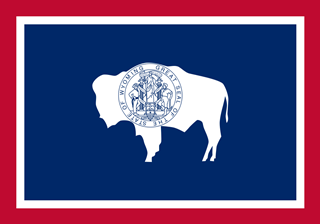 Lawmakers are reconsidering a new law placing caps on political action committee (PAC) spending in state elections. A majority of the Joint Corporations, Appropriations, and Political Subdivisions Interim Committee voted to order its nonpartisan staff to draft a bill repealing a section of state law before it becomes effective on January 1, 2015.
Lawmakers are reconsidering a new law placing caps on political action committee (PAC) spending in state elections. A majority of the Joint Corporations, Appropriations, and Political Subdivisions Interim Committee voted to order its nonpartisan staff to draft a bill repealing a section of state law before it becomes effective on January 1, 2015.
If not repealed, the law will cap direct or indirect PAC contributions at $7,500 to any statewide candidate and $3,000 to any other candidate. Currently there is no limit for PAC contributions.
In a separate measure, the committee ordered a draft bill to repeal the state’s aggregate contribution limits, which conflict with the U.S. Supreme Court’s ruling in McCutcheon v. Federal Election Commission.
On Thursday, June 5, Colorado Deputy Secretary of State Suzanne Staiert issued an agency decision in response to Citizens United’s petition for declaratory order. Citizens United requested its upcoming documentary be excluded from the definition of reportable electioneering communication by […]
 On Thursday, June 5, Colorado Deputy Secretary of State Suzanne Staiert issued an agency decision in response to Citizens United’s petition for declaratory order. Citizens United requested its upcoming documentary be excluded from the definition of reportable electioneering communication by classifying it as one of the constitutional exemptions. The secretary of state found the communication does not fall within any exemptions and there is no general press-entity exemption to the definition of electioneering communication.
On Thursday, June 5, Colorado Deputy Secretary of State Suzanne Staiert issued an agency decision in response to Citizens United’s petition for declaratory order. Citizens United requested its upcoming documentary be excluded from the definition of reportable electioneering communication by classifying it as one of the constitutional exemptions. The secretary of state found the communication does not fall within any exemptions and there is no general press-entity exemption to the definition of electioneering communication.
As Citizens United engages in communication for the primary purpose of influencing elections, it is exactly the type of entity to which reporting requirements apply. To rule otherwise would defeat the purpose of state campaign finance law and disregard the rationale behind full disclosure.
Moreover, the secretary of state found it does not have the authority to create a general press exemption to campaign finance reporting requirements. Although the Federal Election Commission applies such an exemption for Petitioner at the federal level, the secretary of state lacks the authority to import the FEC’s analysis and decision. Therefore, Petitioner’s remedy at the state level lies with courts in the form of litigation, with the legislature in the form of referendum, or with the people in the form of initiative.
June 6, 2014 •
South Carolina Senate Has Work For Veto Session
Lawmakers adjourned the regular session on Thursday, June 5, 2014, but will return for a veto session on June 17. House Bill 3945, the ethics reform bill, passed the House, but was filibustered by Sen. Lee Bright. The Senate will […]
 Lawmakers adjourned the regular session on Thursday, June 5, 2014, but will return for a veto session on June 17. House Bill 3945, the ethics reform bill, passed the House, but was filibustered by Sen. Lee Bright. The Senate will have a final opportunity to vote on the measure during the veto session.
Lawmakers adjourned the regular session on Thursday, June 5, 2014, but will return for a veto session on June 17. House Bill 3945, the ethics reform bill, passed the House, but was filibustered by Sen. Lee Bright. The Senate will have a final opportunity to vote on the measure during the veto session.
Gov. Nikki Haley confirmed on Twitter she would sign the bill if passed.
The Senate is also expected to select a new President Pro Tem, who will automatically be promoted to lieutenant governor and replace retiring Lt. Gov. Glenn McConnell. Former President Pro Tem John Courson resigned to avoid becoming lieutenant governor.
June 6, 2014 •
News You Can Use Digest – June 6, 2014
National: Betting on a Brand When Politics Is the Family Business New York Times – John Harwood | Published: 5/29/2014 Surveys have shown past experiences with a product or memories of family and friends using it shaped consumers’ buying decisions. […]

National:
Betting on a Brand When Politics Is the Family Business
New York Times – John Harwood | Published: 5/29/2014
Surveys have shown past experiences with a product or memories of family and friends using it shaped consumers’ buying decisions. Democrats’ hopes of holding the U.S. Senate this fall rest significantly on the political equivalent of that “brand capital.” In four states that usually lean Republican, Democrats will be running candidates from families with multigenerational records of political success. If at least two of the four legacy candidates can eke out victories, the Democrats’ chances of holding the Senate will be better than even.
‘Colbert Report’ Taught Viewers More about Super PACs than Cable News
U.S. News & World Report – Tierney Sneed | Published: 6/2/2014
Leading up to the last presidential election, the faux conservative host of ‘The Colbert Report” created a super PAC and a secretive “dark money” group on his show. Viewers who saw those satirical segments were significantly better informed about the role of money in politics than viewers of any other news channels, according to the Annenberg Public Policy Center. Stephen Colbert created Americans for a Better Tomorrow, Tomorrow with the help of former FEC Chairperson Trevor Potter. “The Colbert Report” was particularly effective because of the detail the show went into, and the narrative arc of its examination that lasted many months throughout the election cycle.
Federal:
Politico – Anna Palmer and Byron Tau | Published: 6/4/2014
After Patton Boggs’ recent merger with Squire Sanders was finalized, so many lawyers and lobbyists fled the firm that moving trucks lined up in front of its K Street headquarters. One Patton Boggs insider estimated 200 attorneys, lobbyists, and staff, through layoffs, buyouts, and departures, will have left the firm by the time everything settles down. At its peak in recent years, the firm had about 500 lawyers and lobbyists.
Washington Post – Catherine Ho | Published: 6/1/2014
The lobbying industry, once dominated by a handful of big, powerful personalities, has given way to a broader and more grassroots business that has more voices – and must influence more decision makers – than ever before. The Washington Post highlighted some of the lobby firms that are shaking things up, either by starting anew, transforming their structure to do business differently, or experimenting with new ways to broker change through social media and other outlets.
From the States and Municipalities:
Alabama – After 17 Years at Helm, Executive Director Announces Retirement from Alabama Ethics Commission
Columbus Republic – Philip Rawls (Associated Press) | Published: 6/4/2014
Alabama Ethics Commission Executive Director James Sumner is retiring on October 1, ending more than 17 years as the agency’s top staff member. Sumner made note of his efforts to strengthen the ethics code, which culminated in lawmakers passing legislation that included reducing the amount a lobbyist could spend on entertaining a public official, giving subpoena power to the Ethics Commission, and guaranteeing an annual appropriation to the commission so it would not be subject to legislative whims.
California – Indicted Yee Gets a Quarter-Million Votes for Secretary of State
Los Angeles Times – Phil Willon | Published: 6/4/2014
Charges of corruption and gun-running conspiracy notwithstanding, almost 10 percent California voters thought suspended state Sen. Leland Yee should become secretary of state. He was arrested in March and indicted several days later as part of a sweeping investigation into organized crime. Yee had dropped out of the race, but not before a deadline to remove his name from the ballot had passed.
Colorado – Colorado Mulls Forcing Citizens United to Disclose Donor Identities
Colorado Independent – Tessa Cheek | Published: 6/4/2014
Political-advocacy group Citizens United is asking for its upcoming film on Colorado politics to be exempt from the state’s campaign finance laws. The group plans to release the film shortly before the upcoming November election, containing images of and messages about Colorado politicians, though it will not expressly advocate a position on races. If the group gains status as a news media organization, it will not be required to disclose its donors or file campaign finance information around the launch and promotion of its film.
District of Columbia – Former D.C. Council Member Michael A. Brown Gets More Than 3 Years in Bribery Case
Washington Post – Ann Marimow and Mike DeBonis | Published: 5/29/2014
Former District of Columbia Councilperson Michael Brown was sentenced to more than three years in prison for taking bribes in an undercover FBI sting, a comparatively stiff sentence from a judge who said “we cannot have city government run this way.” In the sting operation, Brown took $55,000 in cash payments, handed to him in rolls and stacks of $100 bills transmitted in coffee mugs and duffel bags. The undercover FBI agent was posing as a businessperson seeking preferential treatment on government contracts.
District of Columbia – Vultures on K Street? Yes, Birds of a Feather Flock Together
Washington Post – Theresa Vargas | Published: 6/2/2014
Tell people two vultures have made a home at the intersection of K and 11th streets in Washington, D.C. and they will likely ask the same question Charlie Dewitt did. “The bird variety?” he wondered. K Street is renowned for office buildings filled with highly paid, powerful lobbyists who, along with others in the city’s political food chain, are often called scavengers – and worse. “We have vultures and turkeys and other kinds of creatures here,” joked Dewitt, a lobbyist who has worked in Washington for 25 years.
Maine – Maine Nixes Cap That Limits How Much Individuals Can Give to Campaigns
Lewiston Sun Journal – Christopher Cousins (Bangor Daily News) | Published: 6/4/2014
The Maine Commission on Governmental Ethics and Election Practices will not enforce the state’s $25,000 aggregate limit on campaign contributions by individuals, based on a recent U.S. Supreme Court decision. The change means anyone can donate as much as they want across a range of candidates, though caps on how much each campaign can receive from an individual remain in place. “The commission has determined that it will not enforce the … aggregate limit … during 2014 unless and until it receives further guidance from the … Legislature or a court …,” according to the opinion.
New York – Ex-Brooklyn Prosecutor Charles J. Hynes Accused of Misuse of Funds
New York Times – Stephanie Clifford and William Rashbaum | Published: 6/2/2014
A report by New York City’s Department of Investigation accuses former Brooklyn District Attorney Charles Hynes of using money seized from drug dealers and criminal defendants to pay for a political consultant. Barry Kamins, the administrative judge for the city’s criminal courts, was also implicated in the case. The report said Kamins violated the judicial code of ethics by advising Hynes on his campaign, offering legal advice, and discussing matters the district attorney’s office was actively prosecuting.
North Carolina – Patrick Cannon Pleads Guilty to Corruption Charge
Charlotte Observer – Ely Portillo and Elizabeth Leland | Published: 6/3/2014
Former Charlotte Mayor Patrick Cannon pleaded guilty to honest services wire fraud, which carries a sentence of up to 20 years in prison and a $250,000 fine. An FBI sting recorded him accepting more than $48,000 in cash, airline tickets, a hotel room, and the use of a luxury apartment from undercover agents posing as estate developers who wanted to do business in the city. Cannon was arrested on March 26 and resigned the same day, less than six months after taking office.
South Carolina – SC Lawmakers Agree on Ethics Reform but ‘Most Important Part … Not Getting Done’
The State – Jamie Self | Published: 6/4/2014
A conference committee in the South Carolina Legislature agreed to drop a proposal to establish an independent commission to investigate ethics violations. The compromise reform bill, which is expected to be approved before the legislative session adjourns, raises the annual lobbyist registration fee from $100 to $200. Super PACs would be required to disclose their top five donors and any donor who gives more than $10,000, among other provisions.
Utah – Johnson: Swallow had me launder donations to Lee’s campaign
Salt Lake Tribune – Robert Gehrke | Published: 6/4/2014
Indicted businessperson Jeremy Johnson told investigators he helped launder tens of thousands of dollars to U.S. Sen. Mike Lee’s 2010 campaign at the request of former Utah Attorney General John Swallow, according to an affidavit. Johnson said gave about $50,000 to other people who then donated to Lee’s campaign, circumventing election law that sets maximum individual donations to candidates.
West Virginia – Ethics Commission Fires Executive Director
Charleston Daily Mail – Dave Boucher | Published: 6/5/2014
The West Virginia Ethics Commission fired Executive Director Joan Parker after a lengthy executive session. Commission members gave no reason for their decision. “If you, commissioners, choose to end my employment, I will leave with my head held high knowing that throughout my tenure I have dedicated my efforts to maintaining the integrity of the Ethics Commission and have done everything within my power, even when it was unpopular, to promote compliance with the ethics act,” Parker said before the vote.
 State and Federal Communications produces a weekly summary of national news, offering more than 80 articles per week focused on ethics, lobbying, and campaign finance.
State and Federal Communications produces a weekly summary of national news, offering more than 80 articles per week focused on ethics, lobbying, and campaign finance.
News You Can Use is a news service provided at no charge only to clients of our online Executive Source Guides, or ALERTS™ consulting clients.
June 5, 2014 •
Thursday News Roundup
Lobbying “Caterpillar hires Ray LaHood as a consultant” by Megan R. Wilson in The Hill. Campaign Finance “Stephen Colbert exults in Colbert-crowning study” by Erik Wemple in The Washington Post. California: “The Election’s Over, Where Does The Money Go?” by […]
 Lobbying
Lobbying
“Caterpillar hires Ray LaHood as a consultant” by Megan R. Wilson in The Hill.
Campaign Finance
“Stephen Colbert exults in Colbert-crowning study” by Erik Wemple in The Washington Post.
California: “The Election’s Over, Where Does The Money Go?” by Grant Scott-Goforth in The North Coast Journal.
Missouri: “Kansas City Council panel supports campaign contribution limits” by Lynn Horsley in The Kansas City Star.
Ohio: “Daughter testifies against Benjamin Suarez in campaign finance scheme trial” by Ed Meyer in the Akron Beacon Journal.
Texas: “Texas Ethics Commission fines state Rep. Linda Harper-Brown $5,000 for obscuring campaign loans” by Gromer Jeffersd, Jr. in The Dallas Morning News.
Ethics
South Carolina: “SC lawmakers agree on ethics reform but ‘most important part … not getting done’” by Jamie Self in The State.
West Virginia: “West Virginia Ethics Commission fires executive director, gives no reason for her termination” by Jonathan Mattise (Associated Press) in The Republic.
Elections
Alabama: “Alabama voter turnout lower than 2010” by The Associated Press in the Montgomery Advertiser.
California: “Top-two primary imperils some legislative comebacks as Democrats seek to hold supermajorities” by Don Thompson (Associated Press) in the Daily Journal.
Missouri: “Missouri moving presidential primary to March” by David E. Lieb (Associated Press) in the St. Louis Post-Dispatch.
Virginia: “Glance of candidates in Va. congressional race” by The Associated Press in the Miami Herald.
Redistricting
Florida: “Redistricting trial wraps up with no decision for weeks” by Aaron Deslatte in the Orlando Sentinel.
State and Federal Communications, Inc. provides research and consulting services for government relations professionals on lobbying laws, procurement lobbying laws, political contribution laws in the United States and Canada. Learn more by visiting stateandfed.com.


